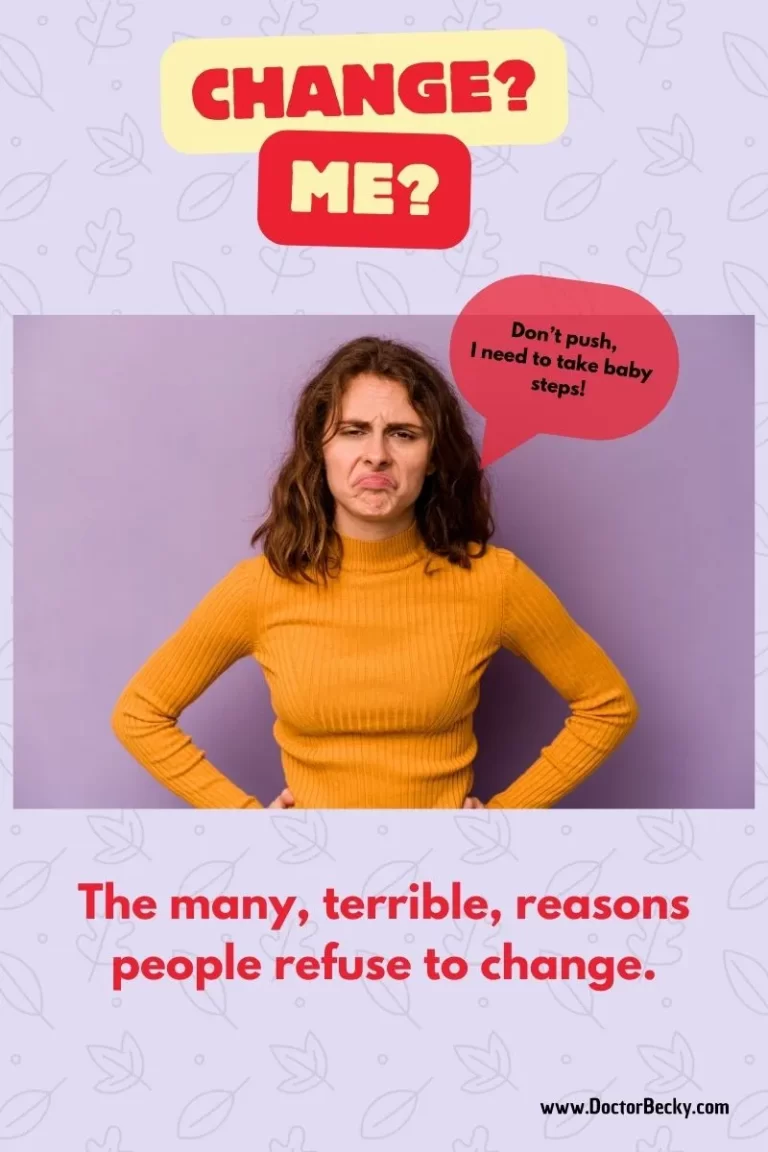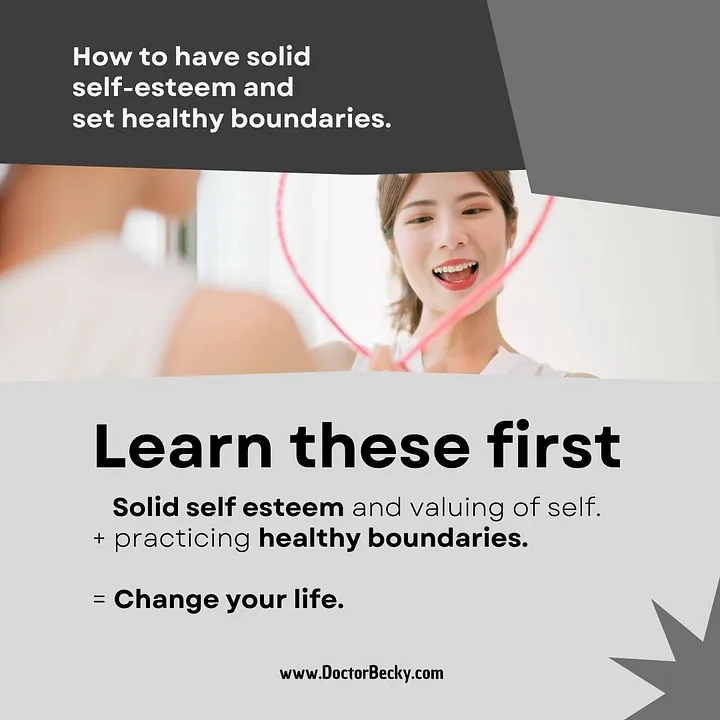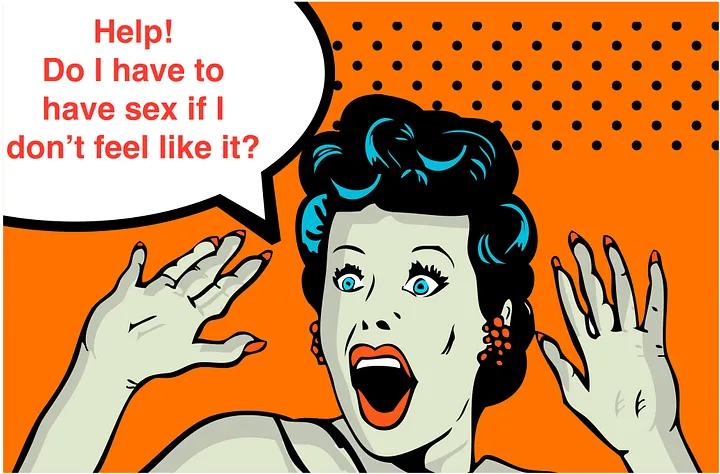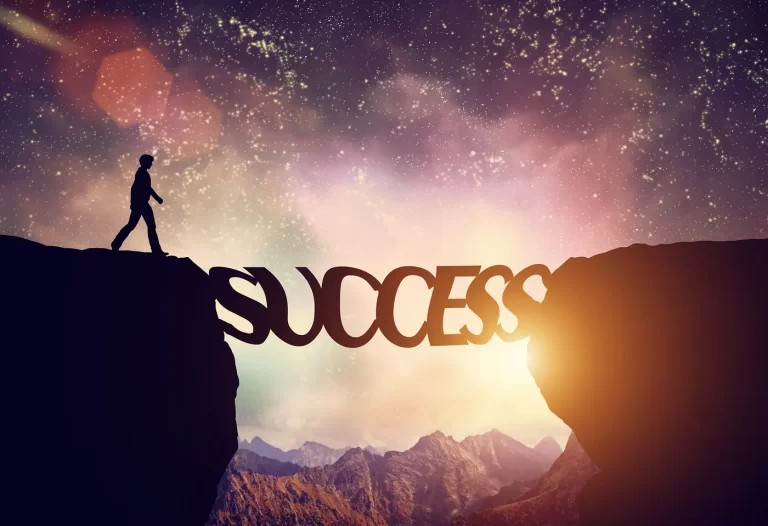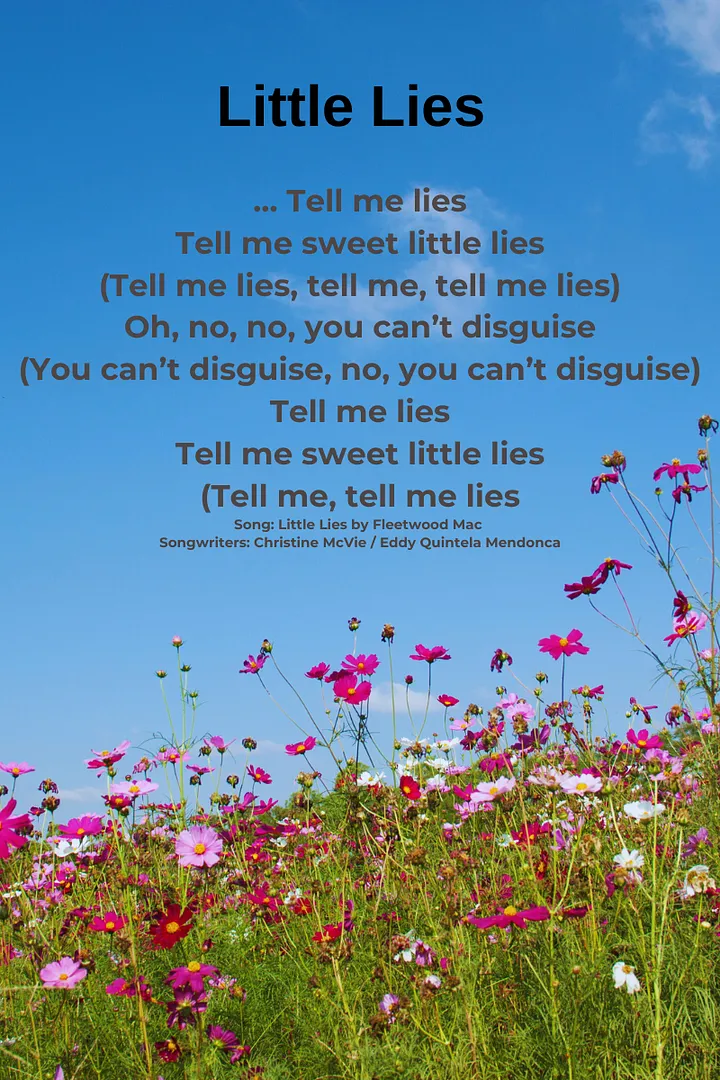Age-related Changes, Decisions, and How to Thrive.
Aging your way and making age-related decisions for yourself
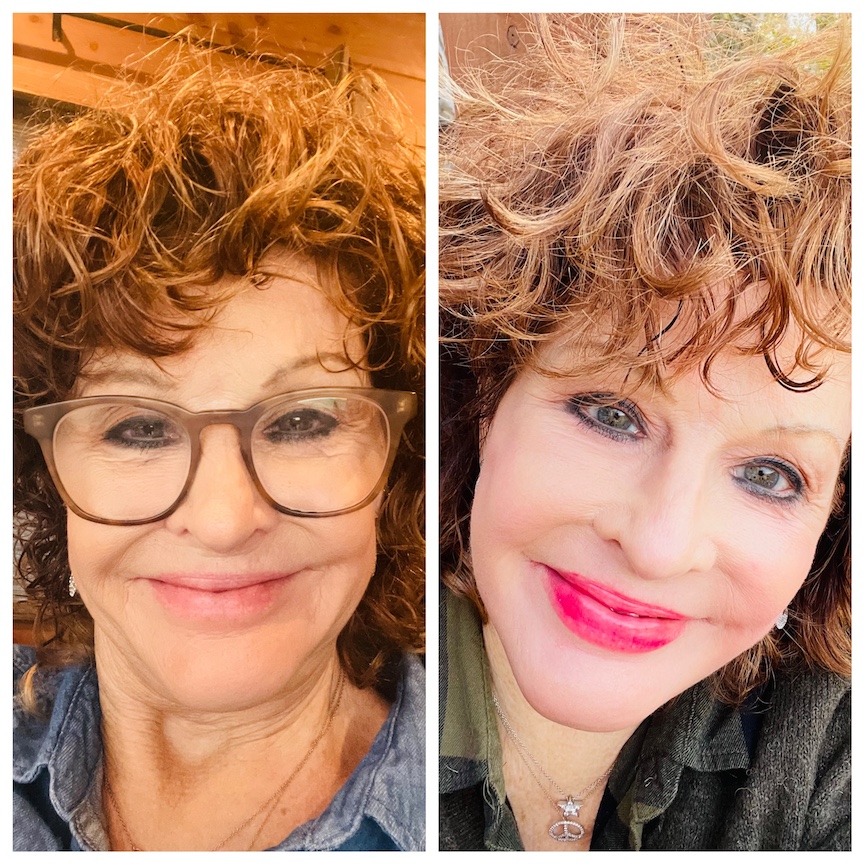
by Becky Whetstone, Ph.D.
Should people do all they can cosmetically and otherwise to feel and appear young? As we age, people face changes and will experience the benefits and costs of it all. We have choices, and there are different ways we can travel through the aging process; to me, it’s a fight to thrive or pack it in. Not that all aging people want to pack it in, but if we don’t consciously fight it, our bodies and minds will do it for us.
When we’re younger adults, it’s much easier. Some of us are naturally in shape for much of our lives. (I was not — I started fighting my weight in high school). As you age, that gift often disappears, and you must fight for the abilities you once had. If you do nothing when nature lets you know the glory days are over, the decline will be shocking and fast. It’s an exceedingly strange experience, and your cognitive abilities, health, and longevity are at stake. Fighting against ourselves on the aging journey is one thing, but if you want to keep going and make a difference, fighting societal stereotypes and ageism is another. For example, I might be fine to let my hair go gray and to allow my body to thicken up in the middle, but in our culture, I’ll become more invisible and maybe even perceived as irrelevant or not as informed as my younger peers. In graduate school, we were told that there was research on how therapists who age naturally without any enhancements are likely to lose credibility and business. So, whether you color your hair, get injections to fill in your deepening facial crevices, or fight to keep your weight stable can be one of your most crucial personal and financial decisions.
I’m in that developmental life stage known as aging, almost in the last quarter of my life, and although I’d prefer not to ponder it, it is impossible to ignore. The subject of age effects is discussed in the news regularly, regarding what politician looks and acts old, what model or star looks great or has “let themselves go,” whatever that means. I’m still haunted by tabloids in the grocery line, outing stars on the beach, or shopping at the grocery store who no longer had the physical beauty they were known for. What’s the point of showing that if not to insinuate that we’d better stay young-looking or be harshly shamed and judged?
Someone recently showed me how I appear to others when they referred to my husband and me as “That older couple.” This person was doing repair work on a house down the street and saw us on our daily walk. We asked him to come look at something to do with our house, and he showed up around an hour later after I’d showered, fixed my hair, and made up my face. He came to the front door, I answered, and he said, “Is this the house of that older couple that was walking earlier?” To be referred to as older was shocking, even if it is true.
In this new life stage, kids are grown, and people talk about retirement, ailments, grandchildren, and if they have enough money. If you are not there yet, think briefly about how strange that must be. You have been young all your life, and suddenly, you are not. You start noticing things you once took for granted … you may get down on the floor one day to clean something and find that getting up is no longer easy. You go to a noisy restaurant and can’t hear what your friends say. You can’t read a menu or may feel blinded by car lights at night, whereas those things used to be no problem. Your skin starts getting spots and other mysterious lesions. Your health care and car insurance premiums hit you over the head annually, firmly insinuating that actuary tables say you are becoming a danger to yourself and others.
Then you notice you’re perceived by others differently, and adjustments must be made within your mind to accommodate that. In some ways, this is very freeing. We all know about age-related changes, such as the body begins to wear out, hair turning gray, metabolism slowing, muscle mass decreasing, sexual interest waning, and you have a problem of feeling young in your mind but knowing time is ticking and limited. As I have aged, I desire to take an active role to 1. Remain healthy and active physically and mentally; 2. Remain relevant in my career, 3. Have the financial freedom to go and do what I want. These are not as easy to attain or maintain as they may sound. I see friends near my age … some look like old ladies and men, and others look young and vibrant. Is there a possible explanation that some of us never cared about self-care or how we look and act, and others do? Is it shallow and vain to spend time and money, and sometimes even inflict physical pain on yourself to not look your age? Some of us can’t wait to retire and do little or nothing, and others still want to stay in the game of life until the morgue comes to pick their body up.
I have two parts of myself that are aging. the Becky that says it doesn’t matter and I should stop fighting so hard to stay on top of it, and the other that says hell no, we’re not going down without a fight. Both parts of me want to keep being active, working, and creating, but physical appearance? I don’t want to be shallow, but I know a part of me is. I’ve worked on being mentally, emotionally, and physically healthy for years, but I remain shallow and vain about certain things. Why do I care at all about physical appearance? I have a legitimate reason, and it has to do with social interactions and how much appearance affects how you are treated and accepted by others, and it is real.
Prior experiences have taught me a sad truth … youth, beauty, and an engaging personality give a person power and privilege. As a young woman in my 20s and 30s, doors would open for me simply because of how I looked and conducted myself. I wish every person would acknowledge their many gifts. Mine are that I have a funny and fun personality, I’m from the South and have an accent, and I’m naturally curious and hopelessly optimistic. I still laugh at a comment by a photographer in the newsroom on my last day of work at the San Antonio newspaper, “I have just always hated how cheerful you are.” Yes, I guess a cheerful reporter is unusual, and naive as I was then, being different from the group helped make me a target. If I had dampened myself down, though, I would have suffered and wouldn’t have gotten to make the impact I did.
My Face.
Beauty and attractiveness are a subjective thing. Life experience has informed me that whatever concoction of qualities I possess, they have helped me in life. That is privilege in a nutshell. It makes me sad to think that the opposite happens to those who don’t have those gifts and that it matters at all. Though beauty and brains can be a blessing, they can also be a curse. I can’t tell you how many times I was accused of getting opportunities in the workplace due to using sex to get ahead. I never did that, but people thought I did. If perception is truth, then I was a woman who slept around to get ahead. It was impossible to wriggle free of sexist stereotypes put on me by others, and I envied those who were just given credit for their intelligence and talent with no caveats or strings attached. I can tell you that my intelligence was often not seen or was disregarded because of my appearance and personality. Doubting reporters in the newsroom regularly hacked into my computer to see how many articles I wrote and how much of the content I turned in had to be edited.
Now that I am older, a 65-year-old woman, I fight other cultural stereotypes. No one assumes I sleep with anyone, which is a relief. And professionally, I’ve created a safe space to protect myself from our judging and sometimes envious culture. When I left the corporate world, the San Antonio Express-News, in the late 1990s, it was to get away from their toxic culture. There, I was depressed and beginning to have panic attacks, and I needed a respite from the constant made-up stories about me and scrutiny. I longed to escape labeling, false assumptions, and the restraints that managers and editors put on me when I came up with creative ideas. Sometimes, the editors would give me the green light to work on a project I was interested in, but when the bitter curmudgeons in the newsroom resented me for having the opportunity, the editors and decision makers would sometimes backpedal and throw me under the bus. Sometimes, I felt like an animal in a cage and longed to be free and in charge of my fate, even if that meant no one would ever read my work.
Moving in a healthier direction.
As I pondered how to create that reality, previous experience had shown me that the only way to have a peaceful, professional existence was as a self-employed woman. The obstacles in my life had always been management and envious or predatory co-workers. I took jobs I hated after leaving the paper to support myself and my children and spent 5 years in graduate school, setting myself up for a career that would give me freedom of creativity, peace, and a good income. I am thankful for this decision, as the newspaper business crumbled anyway as the Internet and easy access to information arrived. Most of my former colleagues who had planned to spend their entire lives in the newsroom had to scramble like mice to find new careers. Today, many of my friends in various careers are in their 50s and 60s and still work, enjoy working, and are being laid off, handed retirement packages before they’re ready, or given duties designed to make them miserable in the hope that they will give up and leave. If they do leave, they face ageism when it comes to looking for new employment. They joke that they’re being sent off to the pasture when they feel they have many more trails to ride. “Our salaries are too high, and they want to bring in younger, less expensive employees,” they say. They lament that no one wants a new hire in the six-figure salary range these days. I remember one of my best friends weeping at her 50th birthday party. As a television news anchor, she knew her days in the prime news chair were numbered, and they were. Within two years, she was replaced by a woman in her 30s. Do I need to add that the male anchors were allowed to stay many years longer? Interestingly, in the same attempt to break free from those who would hold aging women back, she created a television show and website that she syndicates and has done very well. Aging women who still want a place at the table often must buy the table, pay for the room it is in, and make what’s on it interesting enough for others to want to sit there, too.
Proof of age-related discrimination.
Indeed, previous research from The Journal of Management in 2009 shows that older people in the workplace will be stereotyped as having “lower levels of ability and motivation, lower productivity, and greater resistance to change,” even though there is no evidence to back that up. (2) Unfortunately, some aging Americans allow themselves to fall into and embrace the stereotypes that condemn us as declining and less-than as something inevitable when it is not, something known in the academic world as stereotype embodiment theory. (3) You can count on me and many other Americans in my generation to resist that at all costs. In many ways, we must swim upstream against aging stereotypes to keep doing what we love. This is why I implore generations behind me to remain awake and aware of all the changes their careers may face as they age. If you want to be in charge of your fate and avoid the stereotyping and limitations that will come, create a life or at least an alternative plan that accounts for that. We all have an important role in figuring out how to design a life that works for us as age affects us in later life.
Part of my message is for younger people who think that being my age is eons away. It’s not. I was 35 yesterday. I am so grateful for setting myself up as I have because age affects very little of my work life. I’m not worried about layoffs and retirement packages. No manager or decision-maker can decide when the working world has had its fill of Becky. I suppose my clients will do that, and as of today, there is strong evidence to show they still think I have something to offer. I urge younger people to consider how they want to age and if their career will support that. If not, the good news is that you can work now in your decision-making to create a Plan B that ensures the future you want to have.
The Decision to Enhance the Face.
I’m mulling over aging and what it all means because I recently decided to do work on my face. I’ve done injections, Botox, and minor to medium level lasering on my face over the years, and I credit it as the sole reason I look younger than most of my friends, and it has helped me professionally. Honestly, I don’t care how I look compared to my friends, but I want to keep working and creating. I like to make instructional videos about relationships, and I want to keep teaching men, women, and families everything I know about it. If I allow myself to look old, like Aunt Bea on the Andy Griffith Show, as an extreme example, which would be so easy to do, would I still have relevance, or would I be written off? I have written a book about marriage crisis and am trying to get it published. I strongly feel that if I don’t maintain a certain modern and cutting-edge image as an older woman, a la Jane Fonda or Helen Mirren, Julia Louis-Dreyfus, I will be denied a voice my younger counterparts do not yet have to face. And guess what, my self-image is not that of Aunt Bea, anyway, and never was, although some of my friends seem to shoot for that. I must age as I see and experience myself and what makes sense, and my decisions reflect that.
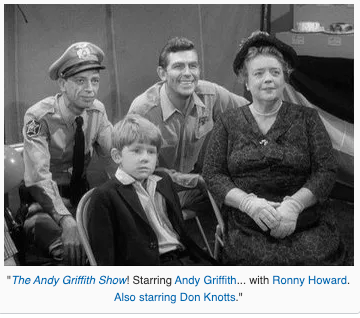
Our culture talks about age all the time.
I know for a fact that society diminishes and stereotypes older people. It’s literally in my face almost daily. People talk about how old President Biden is or the age of republican nominee Donald Trump and pick apart their perceived physical and mental frailties; the rest of us coming behind them, and many others aging in the public eye, are watching how the public addresses the subject, and it’s cruel, brutal, and heartless. Tabloids expose the personal lives of celebrities who have had cosmetic procedures as if it is a gotcha moment or something to be ashamed of. I think we baby boomers have a good idea of what people think and say about us in certain age groups, even though we are smart, experienced, wise as hell, and have a lot of contributions to make to this world. I recently saw a headline from the New York Post (2) that drives home what I’m saying: “Morning Show fans cringe at Jennifer Aniston’s face: ‘Unrecognizable and weird.” The Post even asked plastic surgeon Sam Rizk to guess all the cosmetic features the 54-year-old actress has had done. Shame on him for doing so. The tabloid pulled quotes from the social media platform X, formerly known as Twitter, that were beyond cruel, “She looks like a freak, I can’t watch her anymore and I used to LOVE Jennifer Aniston …” @terrybythebay said. “I’m watching The Morning Show & can’t get past Jennifer Aniston’s face! What did she do? …. made it almost unrecognizable & weird.” @TheSiouxzy. Not nice. I think Aniston looks fantastic, and I do not doubt that if she had done nothing to her face, she’d be slammed for that, too.
So, while our culture discusses our aging and decisions that affect that, the question is, will our clients, patients, customers, and audiences allow us to keep contributing? What can we do to remain viable in the eyes of the consumer just a little longer? Even watching ABC’s, The Golden Bachelor, which is a show that has done more for people close to my age than anything else I’ve seen in a long time, mainly because it shows the lives of older adults aren’t really that different from younger ones, looks still figure in heavily. I noted to my husband the first night 72-year-old Gerry Turner sent the first group of older participants home, “Almost every one of the women he chose to stay has had work done of their face, and the majority of women he sent home had not.” That is, in a nutshell, the nightmare.
Damned if you do, damned if you don’t.
Women who have cosmetic surgery on their faces are not sympathetic figures in our culture. No one likes the overdone plastic look that older individuals and aging women sometimes acquire, and neither do I, Healthcare providers insist to me that the ones who look like that have begged for it, going against professional medical advice. I clarified to my medical professional that I didn’t want that to happen. A recent study shows that women who have made medical decisions to have cosmetic surgery on their face experience a negative plastic surgery effect characterized by less-than opinions in four areas: warmth, competence, morality, and humanness. (1) The more attractive the woman, the more negative the bias. Alas, people are kinder in their opinions if a similar decision is made by a woman perceived as unattractive or has glaring facial “defects.” It is more so the decision to have the surgery than how the person looks before or after that is looked down upon. At the end of the day, the latest research studies say my surgery has the potential to affect people’s perception of me negatively when what I desire is to feel better about myself and keep myself viable in my media career a little longer.
The emotional responses of friends and family to my decision have been negative across the board, as the research predicts, to the point that I stopped telling anyone else about it. No one ever says, “I am so happy you are about to improve your aging face,” or “What a great use of your savings account.” Even my husband doesn’t want to talk about it much, saying simply, “You don’t need it.” However, I’ve been open about my previous facial interventions to friends and clients for years, never volunteering it. The dark hair on my head will tell you my choices about that. Still, if someone asks or says I look way young for my age, I credit my personal self-care, positive attitude, and the medical profession. My message to the world is that this is a first-world problem and a personal decision that each person must make for themselves. We all have different life stories and experiences, as well as plans for our future, why not let people be themselves and do what they want, so long as it doesn’t hurt you, right? What purpose is there to criticize women’s choices as they age? Women can look great throughout their life span for little or no money if they choose to. I looked at all the available options offered by medicine today for my last facial hurrah … lasers, injections, and surgeries, and made my choice. I can honestly tell you that I did this for one person and one person only: myself, admitting that I am influenced by all the personal and cultural reasons I wrote about above. Even if the surgery doesn’t buy me a little more time of perceived relevance, and despite all the negative information that tells me I will likely be negatively perceived, I would still want to do it.
Walk a mile in an aging person’s shoes …
Most people have no idea what future decisions they might make regarding old age and physical aging until the day comes when they see it in the mirror or notice people treat them differently because of it. That first gray hair. Drooping eyelids. Jowls. It happens slowly, and then an avalanche of new things begins to change. And, sorry, but no one much younger than me has an opinion about this that I care to hear. I have read quotes by beautiful young actresses, singers, and influencers in their teens, 20s, and 30s who say when the time comes, they won’t ever do it. That’s so easy to say when your flesh is tightly attached to your cheek and jawbones, and doors open widely due to your beauty and fame. Only when they begin to lose the power those attributes have brought them and get replaced by younger women doing similar things and experience the age-related differences will they understand the choice we all face to enhance or go au naturelle. You can be Aunt Bea, Jane Fonda, or anything in between. The decision is complicated. I sometimes wonder why it is socially acceptable to get a total hip or knee replacement as you age and even color your hair, but don’t you dare put your face under the knife. In the end, I suppose, it is if it’s a necessity, but what is unnecessary for one person might feel very necessary to another.
It does seem like people and our culture are often very uncomfortable with the decisions and choices others make when we’d all be much happier if we could allow people to be themselves and accept them as is. I feel certain that will never change. People observing older age will talk negatively about you if you do things to enhance your appearance and if you don’t. The continual hammering of the population to conform to a certain way creates suffering. Too bad we can’t send those who judge harshly to surgery to have their nastiness removed. No one will understand the dilemmas of aging until they go through it. My husband, a physician, and anesthesiologist, says that people are harsh in general about any unnecessary surgery, as if it is only okay when you absolutely need it. To that, I say, dear God, people.
1. Bonell, S., Murphy, S. C., & Griffiths, S. (2021). Under the knife: Unfavorable perceptions of women who seek plastic surgery. PloS one, 16(9), e0257145. https://doi.org/10.1371/journal.pone.0257145
2. Posthuma, R. A., & Campion, M. A. (2009). Age stereotypes in the workplace: Common stereotypes, moderators,
and future research directions. Journal of Management, 35, 158–188. doi:10.1177/0149206308318617
3. Levy, B. (2009). Stereotype embodiment: A psychosocial approach to aging. Current Directions in Psychological
Science, 18, 332–336. doi:10.1111/j.14678721.2009.01662.x
4.. https://nypost.com/2023/10/21/morning-show-viewers-cringe-at-jennifer-anistons-face/
Becky Whetstone, Ph.D., is a licensed Marriage and Family Therapist in Arkansas and Texas* and is known as America’s Marriage Crisis Manager®. She is a former features writer and columnist for the San Antonio Express-News and has worked with thousands of couples to save their marriages. She can work with you, too, as a life coach. She is also co-host of the Call Your Mother Relationship Show on YouTube and has a private practice in Little Rock, Arkansas, as a life coach via Zoom. To contact her, check out www.DoctorBecky.com and www.MarriageCrisisManager.com. Don’t forget to follow her on Medium so you don’t miss a thing!
For licensure verification, find Becky Whetstone Cheairs.
If you enjoyed this, you might also enjoy: https://marriagecrisismanager.com/staging/7172/if-you-want-to-better-understand-women-read-this/

